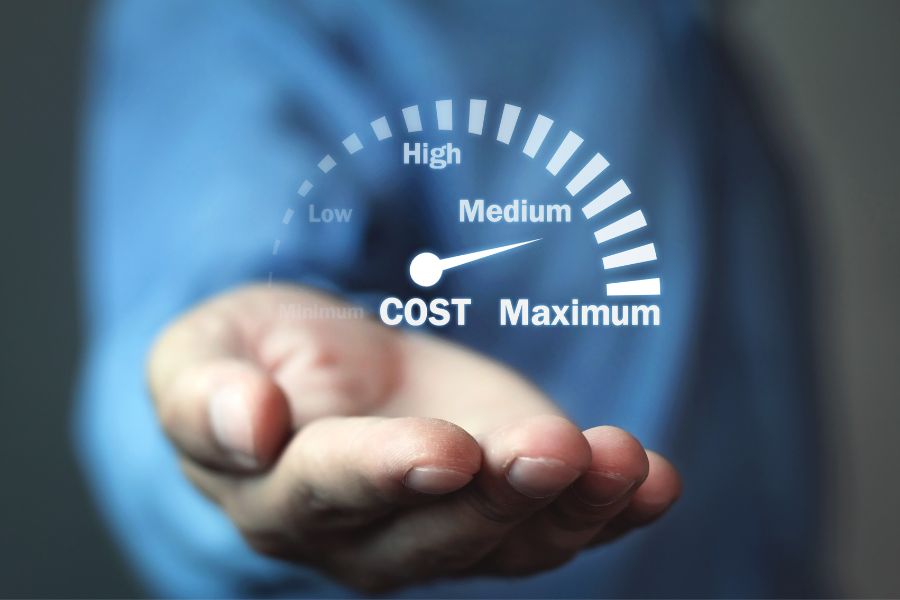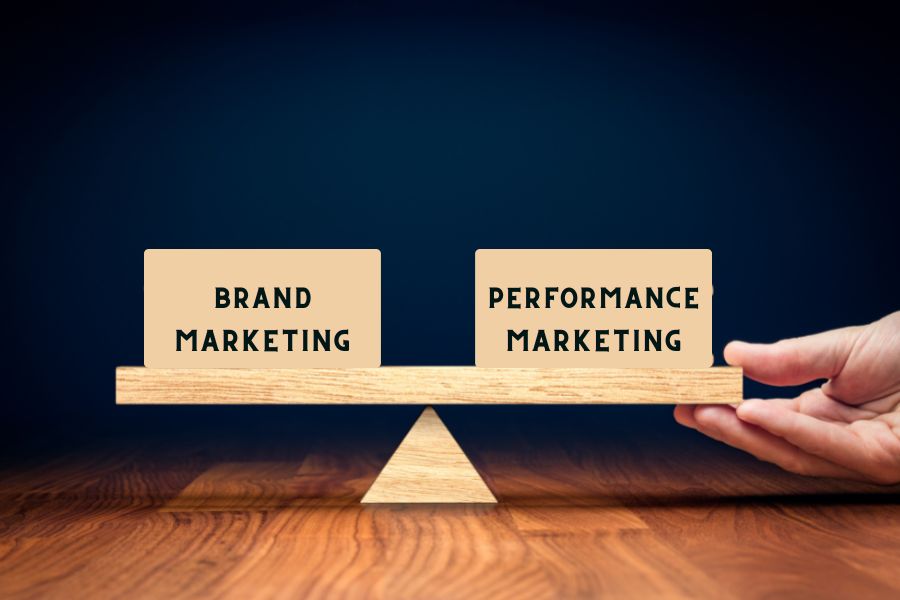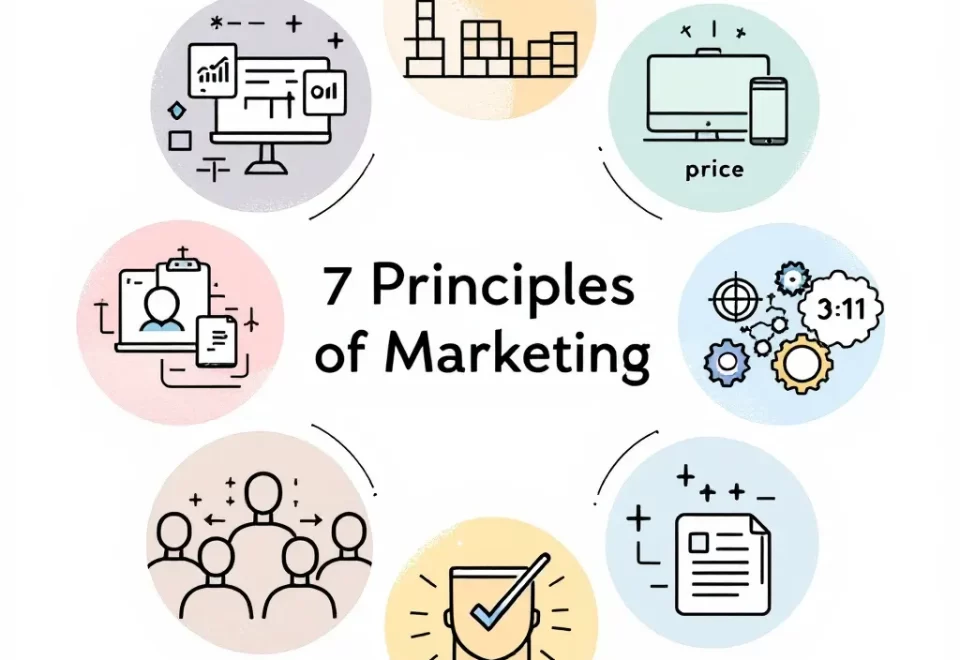These days, businesses and brands over prioritize performance marketing while neglecting brand marketing. However, it shouldn’t be so, as there are consequences of prioritizing one strategy over the other. In 2015, we witnessed the famous brand Adidas go through some challenges in their business as a result of overinvesting in performance marketing and overlooking brand marketing.
Ever since the brand has found it somewhat challenging to improve its marketing efforts and find a balance between brand marketing and performance marketing. Most businesses and brands these days are obsessed with performance marketing because of its business-boosting prowess. Most times, you can’t always blame these businesses for loving performance marketing so much because when done properly, it drives direct sales, which can be directly attributed to certain digital strategies or an array of these strategies.
However, finding a balance between brand marketing and performance marketing is the most important and best for your business. Unfortunately, businesses are engrossed in the immediate success of performance marketing that they forget to build and maintain brand loyalty. In this post, we shall discuss ways to balance performance marketing and brand marketing for the betterment of your brand.
Brand Marketing and Performance Marketing in a Nutshell
Brand marketing and performance marketing are speedily becoming symbiotic for brands as the need to build a relationship with clients are essential, just as it is with providing personalized campaigns. Therefore, as the digital marketing industry evolves, brands and businesses must follow suit.
Brand marketing is the more emotional and everlasting aspect of marketing strategy. On the other hand, performance marketing is a fast and short-term strategy that can be leveraged for lead generation and sales.
Do you think you should incorporate brand marketing or performance marketing into your marketing strategy? Marketers and app developers have different opinions about brand marketing and performance marketing. These two strategies have their pros and cons. This post will enlighten you on how they can help you reach your marketing goals.
What is Performance Marketing?
According to the Performance Marketing Association, performance marketing is a phenomenon where advertisers, whether businesses or brands, pay marketing companies (publishers or affiliates) to perform and complete certain actions like clicks, lead generation, or even sales. It involves Native advertising, Search Engine Advertising (SEA), Partner Marketing, Influencer Marketing, Social Advertising, and Email Marketing.
Performance marketing is a strategy that is solely driven by immediate and short-term results. You upload your ad on any available performance platform, however, one that targets your audience, and only pay that platform when one of your target audiences completes an action.
So What Are the Pros of Performance Marketing?
Easy to measure and optimize
Performance marketing is ROI-driven. More so, it is transparent, measurable, trackable, and transparent. Performance marketing allows you to see and monitor users’ journeys in real-time, from clicks to purchases. You can also determine the best channels and platforms. With this, you can allocate your budget accordingly.
Campaign optimization
Performance marketing allows you to test several creatives and messages. You will also get fast and measurable results, user response, and engagement with content.
Cost effective and high ROI impact
Since you only pay when the deed is done after a user completes an action, it reduces the risk and cost per action (CPA) while boosting your ROI and leaving extra funds to invest in other areas. No other marketing strategy, including brand marketing, offers this.
Wider reach, lower risk
With the Partner Marketing option, you can tap into third-party audiences when you work with them. This allows you to reach a wider audience with a lower budget and less risk, directly increasing revenue streams and growing your business.
Are there any cons to performance marketing? Yes, just a few of them.
Wondering if you should focus on brand marketing or performance marketing to drive more sales?
Contact Growth Hackers
Thorough research
Performance marketing is not entirely risk-free; it requires a lot of research. A survey conducted by Ascend2 shows that 48% of marketers find that designing a comprehensive performance marketing strategy is the greatest challenge to building a successful brand. Furthermore, CPAs may be somewhat high on specific channels like Facebook and Google. Also, they are expensive and quite competitive. This will require more time on strategy.
Use trusted sources
When implementing performance marketing, you must ensure your traffic generates from legit and reputable sources. Otherwise, you risk tarnishing your brand, which will eventually chase visitors and potential clients.
Requires Regular Testing and Optimization
Performance marketing requires you to test, track and measure campaigns regularly. It can be time-consuming and draining, especially when done manually.
What is Brand Marketing?
Brand marketing is based on building and maintaining your brand identity. It involves delivering your brand values to boost customer loyalty and credibility by leveraging brand positioning and storytelling. In other words, brand marketing basically helps build and maintain brand loyalty. It is measured by its long-term success and recognition among clients.
Now, let’s visit the pros of brand marketing.
It increases brand visibility
Having brand recognition or visibility is paramount to every brand and business. The more your brand is visible, the higher the likelihood of converting leads to clients. Without brand marketing, the result of performance marketing may not be so solid.
It boosts performance marketing
Similar to what we have above, brand marketing boosts performance marketing strategy as a popular brand will result in more click-through and lesser CPAs.
So what are the cons of brand marketing?
Expensive and co-dependent
Brand marketing doesn’t require generating leads or converting audiences; its goal is increasing your brand’s visibility. To this end, this strategy may appear fruitless if you don’t have solid enough brand loyalty with your target audience.
Difficult to measure
Tracking the progress of brand marketing can be daunting and vague.
Find a balance between brand marketing and performance marketing for long-term success!
Which Strategy is Best for My Brand?
Getting far down this post means you already know how powerful and critical brand marketing and performance marketing are for your brand or business. Balancing brand marketing and performance marketing creates a seamless experience that results in organic growth.
In other words, businesses must embrace the union of brand marketing and performance marketing in order to achieve optimum results and progress.
Balancing Brand Marketing and Performance Marketing
Begin with brand marketing to increase your brand awareness, then leverage performance marketing to convert audiences into leads than sales.
- Utilize brand marketing and performance marketing in your campaigns. Here, you can use performance marketing strategies like discounts or coupons. You should also engage ad formats and create a data-driven element to measure and track the effectiveness of each channel. Add a bit of branding by creating content that builds credibility.
- Consistency is key. Always ensure that all your contents, ad copies, and landing pages are the same across all channels. For instance, if you want to run a seasonal campaign, the contents on your desktop and social campaign must align with the ones on your website or app. A bad landing page will drastically reduce the conversion rate, while a poor offer will not motivate users to complete actions.
- Don’t focus lead generation on short-term goals — plan for the long-term growth of your brand.
- Focus on the overall growth of your business. Equate your short-term and long-term goals to particular objectives for your marketing strategies.
- Performance marketing provides deeper insights into the majority of engaged users, and this may have a very significant impact on brand marketing. With this, brand marketers can collect data points and metrics such as location, gender, age, etc., through performance marketing and utilize and exploit them in brand marketing campaigns to reach a more targeted audience and get effective results.
- Utilize performance marketing to stimulate your business. Here, you can leverage sequential messaging and feedback to optimize brand desire and impact.
- Performance media is just as important, too, especially for start-up brands and businesses. It is crucial you focus on major performance indicators. Furthermore, paying on the basis of cost per lead or per click may stretch your budget, leaving you with extra funds to invest in other aspects of your business, say brand marketing.
- Performance marketers should collaborate with brand campaign managers for optimum solutions. They should work hand in hand to suit timing and strategies.
- Don’t base your decisions on KPIs. Do away with the rigidity and apply a flexible approach to running performance marketing.
- Test the effectiveness of your brand’s campaigns with performance marketing. You can determine organic visits to your website as soon as you start your social media campaign. More so, performance marketing tends to be most effective when supported by branding. To perform this test, measure traffic, clicks, sales, etc., while running a campaign.
Your Ultimate Strategy: Brand Marketing or Performance Marketing?
On getting here, you can see that balancing brand marketing and performance marketing only results in your business’s long-term growth and success. To this end, you should focus more on how brand marketing and performance marketing can work harmoniously to grow your business rather than comparing the two strategies and looking for a better option.
Growth Hackers is an award-winning performance marketing agency helping businesses from all over the world grow. There is no fluff with Growth Hackers. We help entrepreneurs and business owners find a balance between brand marketing and performance marketing, increase their productivity, generate qualified leads, optimize their conversion rate, gather and analyze data analytics, acquire and retain users and increase sales. We go further than brand awareness and exposure. We make sure that the strategies we implement move the needle so your business grow, strive and succeed. If you too want your business to reach new heights, contact Growth Hackers today so we can discuss about your brand and create a custom growth plan for you. You’re just one click away to skyrocket your business.







